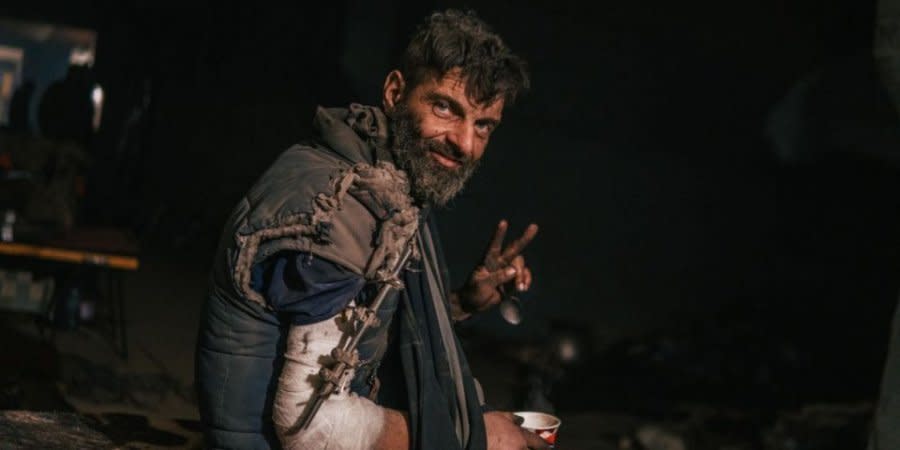Marine Mykhailo Dianov talks about torture and abuse in Russian captivity

Dianov was among those who were held by the occupiers in the prison in Olenivka in the occupied part of Donetsk region. In an interview with UK broadcaster Sky News, Dianov described the prison as a concentration camp.
He said the Russians brutally treated the prisoners from Azovstal — they stripped, beat, scotch-taped and humiliated them. The invaders also tortured the Ukrainian defenders with hunger.
Read also: Ukraine’s border guards in poor physical, psychological condition after Russian captivity
"They treated us like animals,” Dianov said. “It was impossible to eat. We were given 30 seconds to eat. You had to eat everything you could in 30 seconds. The bread was deliberately very stale - the boys who had their teeth knocked out did not have time to eat. It was just 30 seconds and then you had to stop. Then you had to immediately get up and run. It was like that all the time," recalls Dianov.
The soldier also said that some prisoners were thrown into solitary confinement and tortured for picking up a berry from the ground and eating it. They were beaten with sticks, electrocuted, and had needles stuck under their nails.
"Believe me, after a month of food deprivation, when you close your eyes, you forget about your family, about the country, about everything. All you think about is food,” he says.
Moreover, the occupiers had stuffed the prison with many times more people than it was designed to hold. Instead of 150 in the block, there were 800. Due to constantly being in an incredible crowd, Dianov developed problems with his legs – now he has difficulty walking.
Read also: Who was swapped and why: Ukraine’s largest prisoner swap of the war
Four months of Russian captivity have changed him beyond recognition. The soldier has lost 40 kilos of weight, and his health had deteriorated significantly.
The fact that the Russians barely provided the wounded prisoners with the necessary medical care also caused irreparable damage. At the time of his capture, Dianov's right arm was broken. The occupiers performed the surgery only using the pliers and without anesthesia. During his stay in captivity, due to the lack of medical care, the bone had grown back together in a semicircle.
Now he needs to gain back 20 kilos before he can have corrective surgery on his arm. But improving his mental state, most likely, will take much longer.
"Everyone is injured. I consider myself a mentally strong person, but many things have lost their value to me," says Dianov.
Read also: Azov fighters who survived Olenivka among those returning home in latest prisoner swap
On Sept. 21, Ukraine returned 215 of its defenders from Russian captivity, 108 of whom were Azov fighters. Others included border guards, policemen, marines, and national guardsmen.
Most of the prisoners were returned at the border with Russia in Chernihiv region. Five commanders from Azovstal were exchanged in Turkey, where they will remain until the end of the war under the personal guarantees of protection and security of Turkish President Recep Tayyip Erdogan.
Read also: Ukrainian defenders return from Russian captivity – photo report
In addition to the Ukrainian soldiers, ten foreigners who fought for the Ukrainian army were released. Among them were those who were illegally sentenced to death by the DNR terrorist group. They were released in Saudi Arabia.
Five commanders of the Azovstal garrison were exchanged for 55 Russian soldiers. In exchange for the rest, Ukraine gave Russia Viktor Medvedchuk, a member of Ukrainian Parliament, currently suspected of treason – whose children’s godfather just happens to be Russian dictator Vladimir Putin.
Read the original article on The New Voice of Ukraine

